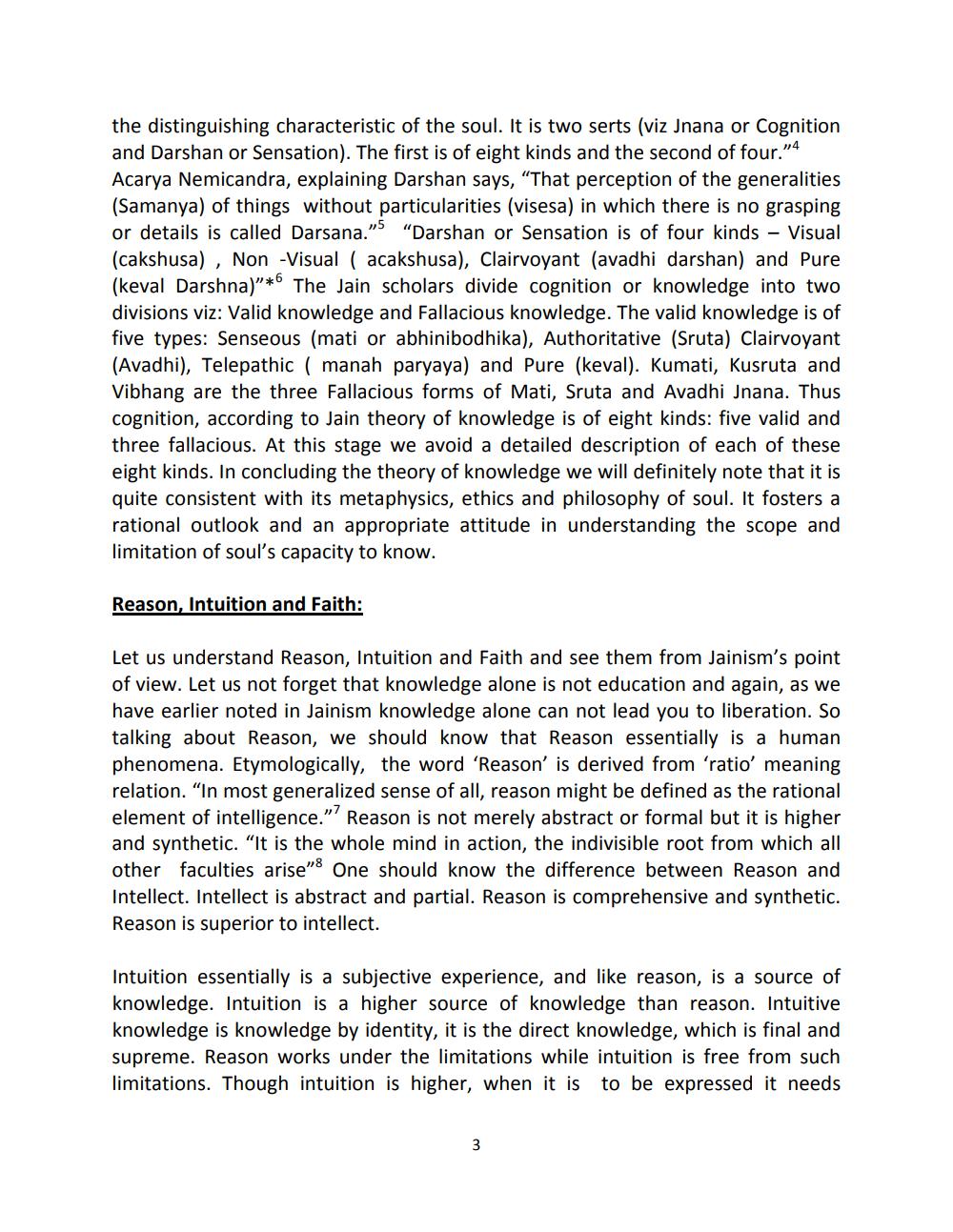Book Title: Education in Jainism Author(s): Hemant Shah Publisher: Hemant Shah View full book textPage 3
________________ the distinguishing characteristic of the soul. It is two serts (viz Jnana or Cognition and Darshan or Sensation). The first is of eight kinds and the second of four." Acarya Nemicandra, explaining Darshan says, “That perception of the generalities (Samanya) of things without particularities (visesa) in which there is no grasping or details is called Darsana." "Darshan or Sensation is of four kinds – Visual (cakshusa), Non -Visual (acakshusa), Clairvoyant (avadhi darshan) and Pure (keval Darshna)”*6 The Jain scholars divide cognition or knowledge into two divisions viz: Valid knowledge and Fallacious knowledge. The valid knowledge is of five types: Senseous (mati or abhinibodhika), Authoritative (Sruta) Clairvoyant (Avadhi), Telepathic ( manah paryaya) and Pure (keval). Kumati, Kusruta and Vibhang are the three Fallacious forms of Mati, Sruta and Avadhi Jnana. Thus cognition, according to Jain theory of knowledge is of eight kinds: five valid and three fallacious. At this stage we avoid a detailed description of each of these eight kinds. In concluding the theory of knowledge we will definitely note that it is quite consistent with its metaphysics, ethics and philosophy of soul. It fosters a rational outlook and an appropriate attitude in understanding the scope and limitation of soul's capacity to know. Reason, Intuition and Faith: Let us understand Reason, Intuition and Faith and see them from Jainism's point of view. Let us not forget that knowledge alone is not education and again, as we have earlier noted in Jainism knowledge alone can not lead you to liberation. So talking about Reason, we should know that Reason essentially is a human phenomena. Etymologically, the word 'Reason' is derived from 'ratio' meaning relation. "In most generalized sense of all, reason might be defined as the rational element of intelligence."' Reason is not merely abstract or formal but it is higher and synthetic. "It is the whole mind in action, the indivisible root from which all other faculties arise" One should know the difference between Reason and Intellect. Intellect is abstract and partial. Reason is comprehensive and synthetic. Reason is superior to intellect. Intuition essentially is a subjective experience, and like reason, is a source of knowledge. Intuition is a higher source of knowledge than reason. Intuitive knowledge is knowledge by identity, it is the direct knowledge, which is final and supreme. Reason works under the limitations while intuition is free from such limitations. Though intuition is higher, when it is to be expressed it needsPage Navigation
1 2 3 4 5 6 7 8 9
